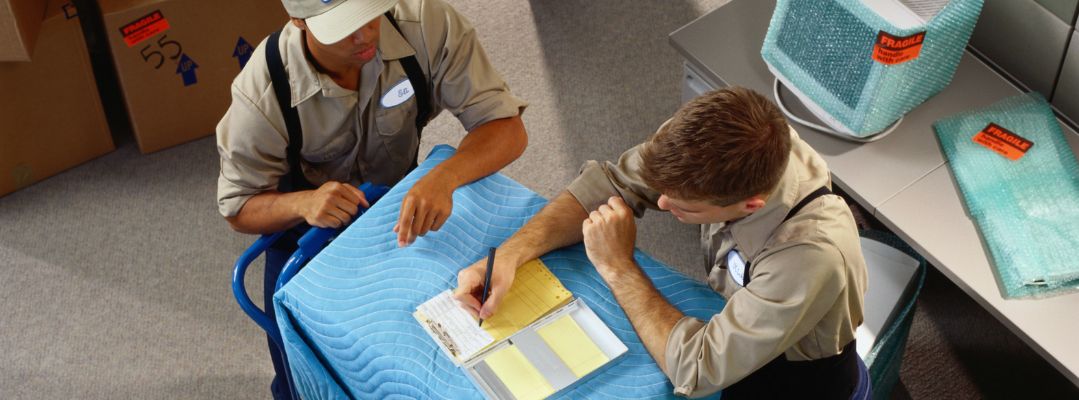How Does a Commercial Move Differ from a Residential Move?

When you’re moving your house, there’s a lot of emphasis on personal items like furniture, clothes, and other belongings that make your house feel like a home. However, moving the business is an entirely distinct matter. You’re not just moving personal items, you’re also moving equipment, inventory, and office furniture that are crucial to running the business smoothly.
Although both types of moves require the help of movers, they require different skills. Residential movers are skilled in moving delicate objects such as antique furniture and fragile crockery without causing damage. On the other hand, commercial removalists are skilled at packing and transporting heavy office equipment and machinery without disrupting the day-to-day operations of the business.
This guide is here to help you understand the differences between moving your home and moving your business. Whether you’re packing up your family’s belongings to move to a new house or getting ready to relocate your business to a bigger place, it’s important to know what to expect. By knowing the unique factors involved in each type of move, you can make the whole process much easier and less stressful for everyone.
Understanding Commercial & Residential Move

Before discussing the difference between commercial and residential moves, it is important to understand each type of move.
Commercial Move
Moving a business, be it an office, shop, or even a large corporation or factory, is a more complicated process than moving a home. It requires experienced professionals to ensure a smooth transition. Proper planning and execution are critical to minimise disruption to business operations.
Planning a commercial move involves many detailed steps and usually requires specialised help. You will likely need a moving company that specialises in commercial moves to handle packing and moving heavy, awkward, or bulky items from your office. To minimise disruption to your business, consider scheduling the move for a weekend or during off-hours, like evenings or overnight, to avoid impacting daily productivity.
Residential Move
Most of us have experienced moving homes at least once in our lives, so we are familiar with the challenges it can bring. The main goal of a residential move is to ensure a seamless transition of personal and family belongings to the new home. One of the biggest challenges in residential moves is transporting fragile or oversized furniture pieces such as antiques or moving a piano, which can easily be damaged and are difficult to carry. That is why it is crucial to hire professional residential movers who have the expertise to handle these items with care.
In addition to the physical aspect of moving furniture and belongings, residential moves also involve emotional considerations. Moving from one home to another can be a significant life event, especially for families or individuals who have lived in the same place for a long time. There is often a sense of attachment to the old home and the memories associated with it. Professional residential movers not only help with the logistics of the move but also provide reassurance and support during this emotional transition.
Difference Between Commercial and Residential Move

Here are the key distinctions between commercial and residential moves:
1. Difference in Move Preparation
When you’re getting ready to move house, it’s all about sorting out your stuff and making a plan. You’ll probably spend time deciding what to keep, what to toss, and what to donate. And scheduling the move is important too, to make sure everything goes smoothly. Moving house is also a chance to tidy up and simplify your life, so many people take the opportunity to get rid of things they don’t need anymore.
But when it’s a business getting ready to move, things are a bit different. It’s a more complicated process that requires careful coordination. You’ll need to work with different departments to make sure every part of the move is covered. For example, if it’s a store moving, you’ll need to keep track of all the stock. And if it’s an IT company, protecting sensitive data is a top priority. No matter what kind of business it is, it’s crucial to hire a moving company that understands the unique challenges of commercial moves.
2. Difference in Planning
Planning for a residential move is generally simpler compared to commercial moving. Residential moving primarily involves transporting furniture and personal belongings from one home to another. Although it still presents its own challenges and requires careful planning, such as decluttering and scheduling the move, it’s generally perceived as less complex than commercial moving.
On the other hand, commercial moving requires meticulous planning and preparation due to its significant impact on business operations. Business owners must carefully coordinate the move to minimise disruption to their daily activities. This often involves selecting a moving day with minimal business activity to reduce the impact on operations. Additionally, company continuity depends on making sure the relocation doesn’t interfere with financial operations. All things considered, the planning process for business transfers is more complex and includes factors more than merely moving tangible goods.
3. Packing Considerations
When it comes to packing for a move, there are different priorities for residential and commercial moves. In residential moves, the focus is on keeping personal belongings safe and making the move to a new home as easy as possible. Homeowners usually pack fragile or sentimental items with extra care and may group items by room or category to make unpacking easier. Commercial moves, on the other hand, prioritise the safety and continuity of business operations.
Commercial moves typically involve packing inventory, equipment, or sensitive documents, depending on the nature of the business. On the other hand, residential moves are focused on taking care of personal possessions. It’s important to recognize these distinctions so that movers can develop customised packing strategies that meet the unique requirements of each type of move. This ensures a hassle-free and efficient transition for both homeowners and businesses.
4. Safeguarding Assets in Commercial Moves
Commercial moving involves the transportation of assets and sensitive materials, which are more valuable than those typically associated with residential relocations. Unlike residential moves, commercial moves involve the transfer of highly confidential documentation, such as client records, financial statements, and internal accounts. Additionally, critical data stored on IT equipment vital for business operations is also transported during commercial moves. Therefore, ensuring security and confidentiality is the top priority during commercial moves, which necessitates rigorous safeguards and adherence to data protection laws.
Residential moves usually have fewer sensitive items, like personal documents such as IDs and tax papers. But when it comes to commercial moves, there’s a wider range of sensitive stuff to deal with. This includes company documents, financial records, and data stored on computers. Because of this, it’s super important for commercial moving companies to be extra careful. They need to make sure their staff are trustworthy by doing background checks and checking references. This careful planning and execution are crucial for making sure commercial moves go smoothly and safely.
5. Electronic Equipment in Commercial Moves
Commercial moving involves a significant amount of electronic equipment, which sets it apart from residential moves. While personal computers and laptops are the primary items moved in residential relocations, commercial moves typically include a larger volume and variety of electronics. These can include printers, fax machines, desktop computers, monitors, CPUs, processors, and other devices commonly used in office settings. Due to the substantial amount of electronic equipment involved, commercial moves require meticulous planning and execution.
Residential movers, on the other hand, specialise in the safe transportation of domestic items such as televisions, microwaves, and laptops. Unlike commercial movers, they only handle a restricted range of electronic equipment used in office environments. Furthermore, residential transfers do not often include the relocation of workplace facilities such as vending machines, coffee machines, and other heavy gear, which is frequent in commercial moves. This highlights the distinction between the sorts of things and equipment handled by residential and business movers.
6. Difference in Moving Heavy Items
Commercial moving requires a specific focus on handling heavy and specialised equipment, which sets it apart from residential relocations. Unlike residential properties, commercial spaces often require the relocation of various furniture and machinery that are not commonly found in homes. Commercial movers are equipped with an array of specialised tools and equipment, such as toe jacks, forklifts, lifting straps, air bearings, and roller skids, tailored to the unique requirements of commercial moves. These tools enable them to move heavy and bulky items efficiently and safely, such as vending machines, photocopiers, office fittings like desks and chairs, and large equipment found in factories, manufacturing plants, and warehouses.
Residential moving, on the other hand, focuses on transporting personal things and home objects, which are often lighter and less burdensome than the equipment and technology used in commercial moves. While residential movers are skilled at managing ordinary household things such as televisions, furniture, and appliances, commercial movers specialise in dealing with the problems of relocating large and cumbersome objects unique to business facilities. With their expertise and specialised equipment, commercial movers ensure the safe and efficient transfer of heavy items, highlighting the distinct differences in moving heavy items between residential and commercial relocations.
7. Transportation and Moving Teams
Transportation requirements for residential and commercial moves differ significantly in terms of the nature of transporting and the size of moving teams. In residential moves, fewer people are usually required compared to commercial moving. The moving process for residential relocations typically involves minimal manpower, with one truck being sufficient to transport belongings to the new home. Additionally, individuals may opt to transport some items in their personal vehicles for added convenience.
Commercial moving generally requires a larger team due to the high volume of heavy equipment involved. Multiple people are often needed to lift and carry bulky items, and in some cases, forklifts may be used to move particularly heavy equipment. In addition, transportation logistics for commercial moves are more complex than those for residential moves. To effectively move large amounts of equipment, thorough planning is essential. Moving coordinators for business moves must reserve numerous moving trucks to meet the size of the office space and the distance to the new site.
Cost Difference in Commercial and Residential Moves

The cost of moving commercial and residential properties differs greatly. When it comes to budgeting for a move, it becomes clear that these two types of moves require different financial considerations. Costs for residential moves are typically determined by the distance traveled, the amount of objects carried, and any additional services necessary. If you’re moving within the city, then distance may not be a significant factor. However, you may need to pay extra for services such as packing, special handling for valuable items, or temporary storage.
On the other hand, commercial moves are more complex when it comes to finances. Beyond the distance and volume of items, there are additional costs to consider. For instance, moving a standard office will involve costs for transporting furniture and electronics. However, if you’re moving a laboratory, for example, you’ll need to take extra measures while handling delicate instruments and potentially dangerous materials, which may increase the cost.
Conclusion
It is important to understand the differences between commercial and residential moves to plan and execute them effectively. From preparation and planning to packing priorities and logistical considerations, each type of move presents its own unique set of challenges and requirements. By recognizing these differences, individuals and businesses can ensure a smoother and more efficient relocation process that is tailored to their specific needs.
If you’re in search of reliable and professional moving services for commercial and residential needs, look no further than Harry The Mover. With years of experience and a strong commitment to excellence, we offer outstanding services to ensure a hassle-free moving experience. Whether you’re moving your home or business, you can trust Harry The Mover, expert movers across Melbourne to handle your move with care, efficiency, and professionalism. Get in touch with us today to learn more about our services and how we can assist you with your next move.



